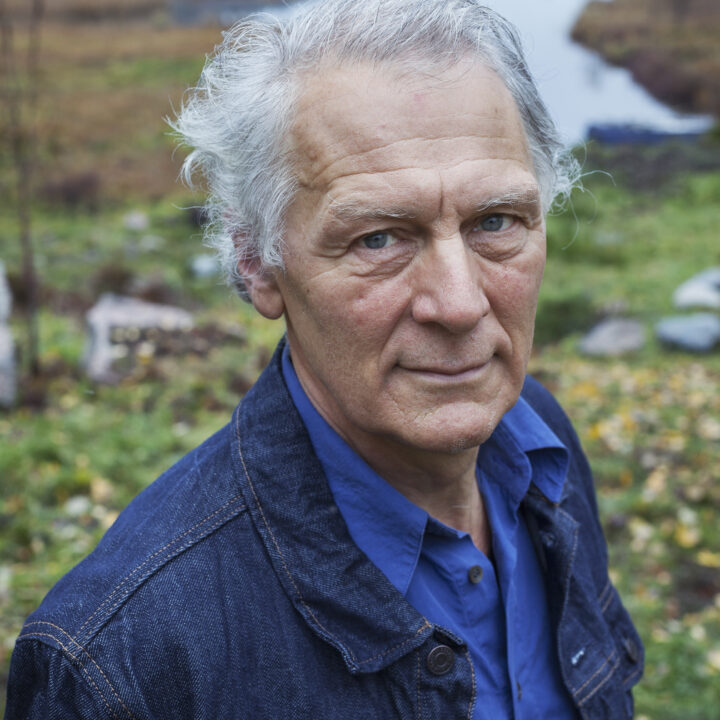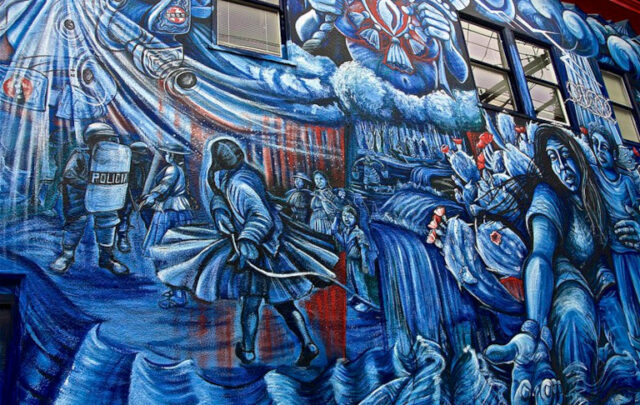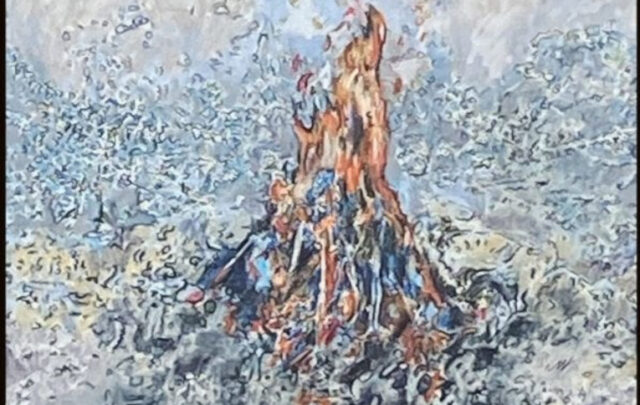I had initially planned to write four articles on the blessing and the curse of the straight line, but the project expanded as thoughts wandered. This is the fifth article and I plan one more. This time my attention is to norms, values and culture. While I think that hard facts (for some reason economics is also considered hard facts, despite that it mostly is centered on the pure abstraction money) are very important, we can’t look away from the how culture shapes how we build our world.
Could we then not use culture to change it for the better? Of course, culture is a very wide term that can be applied to many expressions of humanity, from how we speak to our belief of how the world was created. Culture is also about the stories we tell about ourselves, our ancestors and the stories of the future to come.
The TINA story
There are three storylines dominating in the prevailing civilization, roughly representing the material, the social and the intellectual:
The industrial culture is built on replacing living agents and features with dead matter, both as input and output in a mostly linear process with a high degree of division of labor. Its story is based on innovation, power, freeing humans from toil, producing new fascinating things and making luxuries into everyday objects.

We built it because we could.
The capitalist market economy is based on change, competition and growth where transactions with money substitute for relationship. Its story is about free choice and the assumed (democratic) character of markets where “consumers” are kings.
Modernity is based on the conviction that there are rational explanations for all that happens and that both society and the natural world is governed by “laws”. Its story is about self-realization and rights of the individual, progress of knowledge, application of science in an increasing part of life and that we can – and should – control and manage the world.
Bringing these three storylines* together is what makes the dominating civilization strong and is the foundation for TINA, There Is No Alternative.
Despite TINA, popular cultures seem to think different about the future as well as the past. Did you ever think about the contradiction between the notion that societies are bound for a march towards ever better conditions and the mostly dystopian views expressed in movies, series and books? And how many movies are not constructed around a view of a pristine landscape with poor, hardworking but more or less content local people which is encroached upon by colonial powers, mining companies or other exploitative actors? There, the past, suddenly often seems to be preferable compared to the present.
Another world is possible – and desirable
One cultural task is to create alternative storylines of how a different society could look like. In the 19th century utopian socialism flourished and also other utopian ideas based on religion or personal emancipation. Some of it even resulted in quite fascinating social experiments (that all failed sooner or later, often sooner), many remained on the drawing board. My own favorite in the utopian literature genre is News from Nowhere by William Morris (today most known for his wallpapers and the Arts and Crafts movement).
In News from Nowhere (nowhere is the literal meaning of utopia) the narrator, William Guest, falls asleep and awakes in a future agrarian society based on common ownership of the means of production. In this agrarian society there is no private property, no big cities, no authority, no mandatory schools, no monetary system, no marriage, no courts, no prisons, and no class systems. People work because they find joy in their work. Basic skills such as farming, handicrafts and cooking are in high regard. Technology plays a minor role and some 19th century technologies have simply been abandoned. Morris realized that most labor saving is an illusion “Friend, all their devices for cheapening labour simply resulted in increasing the burden of labour”, Guest is told.
Morris’ view on the relationship between man and nature was different from most of the 19th century socialists. In the novel, Clara says:
“Was not their mistake once more bred of the life of slavery that they had been living?—a life which was always looking upon everything, except mankind, animate and inanimate—‘nature,’ as people used to call it—as one thing, and mankind as another, it was natural to people thinking in this way, that they should try to make ‘nature’ their slave, since they thought ‘nature’ was something outside them.”
Contemporary socialists criticized Morris for being romantic (of course he was!) and some feminists have (in my view unfairly) challenged his view of women. Read and make your own judgement.
Of course, stories doesn’t have to be in the shape of utopian novels, they can be memes, poems, a movie, a sculpture or a song. If you look around you will find the stories in many places.
Stories have to challenge the strong myths of the TINA paradigm, such as control, efficiency and competition. Our quest for control has made life boring as I wrote the other day. According to Hartmut Rosa:
“The driving cultural force of that form of life we call ‘modern,’ is the idea, the hope and the desire, that we can make the modern world controllable.” “Yet, it is only in encountering the uncontrollable that we really experience the world. Only then do we feel touched, moved, alive.”
The capitalist market is based on competition and while a certain degree of competition seems to have been with humans for a very long time, it is actually our ability to cooperate that stands out and that in the long run has been the dominating success factor for human societies. The industrial culture is founded on a very narrow view of “efficiency” which tend to mean that one should produce as much as possible with so little effort as possible. But the end result is a bit the same as the aspect of control. It reduces humans to cogs in a machinery and it doesn’t even save labor or resources on the system level (see quote from Morris in box).
The return of the taboo?
Another expression of culture are norms of various sorts. They come in many shapes from table manners to written rules. Religion is the paramount example of systems of norms. In modern societies laws have taken over much of the role of religion as norm-setters.
Some put their faith in legal instruments for the protection of nature e.g. by introduction of legal rights of nature. Instead of treating nature as property under the law, rights of nature acknowledges that nature in all its life forms has the own right to exist, persist, maintain and regenerate its vital cycles. Such legal rights have been assigned to rivers, mountains and lakes in many continents. There are considerable merits in the acknowledgement of that humans are not alone on the planet and that we have obligations toward other life forms. That doesn’t necessarily mean, however, that a legal expression of this is the best way to go ahead for a number of reasons (which I will not expand upon here, perhaps another time). The experiences of the few places where nature has been given legal rights show that it hasn’t been the game changer many assumed it would be. Still laws are norms and norms are expressions of culture and they are also feeding into culture. I believe it is this function that is most interesting with the Rights of Nature project, rather than the pure legal function of it.
There are many other ways to protect nature with legislation, and while such legislation is useful, environmental laws are rarely a game changer, even if they can be very useful. They will hardly challenge the fundamental relationships that reduce nature to human property, in a similar way as social legislation hardly challenge the basic structure of society. .
In general, I think we need to develop a higher sensibility for other life forms and for landscapes. We need to change our view on nature from a perspective of property, exploitation and transaction to one of relation and connection. We need to give and not only take. We should show gratitude for the bounty of life, even by simple gestures such as thanking for the food on the table. Gratitude is an antidote to the constant search for more, while dissatisfaction is the basis for consumerism.
In the book Det levande**, which I co-authored with my wife Ann-Helen, we discuss that reintroducing sacredness in nature may be a path forward. Historically, people have assigned sacredness to rocks, trees, rivers, eagles and crocodiles just to mention a few. In many cultures some behaviors have been taboo. When humanity threw out all these superstitions with the Enlightenment and rationality, we might have lost the ability to see anything as sacred. Sacred or not, the main thing is to restore relationships between humans and the rest of the living and even with the dead, such as the rocks in the field.
There is an ongoing dance between the material realities and culture. A culture that is not grounded in the material realities will not survive and a system that has lost its credibility among people will crumble – some think that this was the real cause of the fall of the Soviet empire. A changing culture can change society and a new technology or new economic conditions can change culture. The Enlightenment, modernity, technology, fossil fuels and capitalism were mutually reinforcing and permeated daily practices, which in turn galvanized the system; earlier greed was bad, then it became ok and then good and now, finally, it is an essential virtue. This insight has implications for how we instill change. Which will be the theme of my last (I promise!) in this series of articles.
* There is also the story of democracy, but I couldn’t see how to fit it into this. Some see it as an off-shoot of modernity (by its link to human rights, freedom of speech etc.), others as a result of capitalism (through the links to property rights, freedom of trade etc.). I don’t see democracy as a fundamental part of the modern civilization. For example, China became part of the global civilization by the introduction of markets and capitalism, while rejecting democracy.
** Det levande is so far only available in Swedish. If you happen to be a publisher or literary agent, drop me a note….






